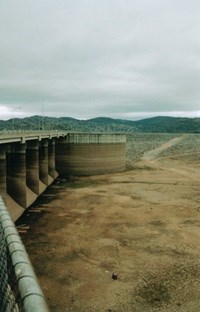The Water Research Commission (WRC) hosted the second in a series of Dialogues on the current drought in South Africa in Pretoria, which focused on drought adaptation and coping strategies, and specifically on understanding our hydrological landscape in the context of the current drought cycle.
During the dialogue the WRC launched a unique online drought portal that will provide visitors with useful information on the current drought and links to various other drought-related websites. The Drought SA portal will be an ongoing project and will continuously be populated with fresh research and knowledge that will empower visitors.
The focus of the dialogue was to discuss whether the country is prepared for recurring drought and what our mitigation and coping strategies are. Other areas of discussion were the knowledge gaps in drought preparedness and what we should do to bridge knowledge and practice.
Adapting to drought challenges
As recently emphasized by WRC CEO, Dhesigen Naidoo, South Africa is a water-stressed country and is on an economic growth pathway that is very water intensive. This, together with a combination of population growth and change in quality of life, indicates that we will need to have a lot more water available to us in the future.
At the same time, the degradation of our water courses, through overuse, pollution and development that compromises our ecological infrastructure, means that we are rapidly organising to have even less water of good quality available to us tomorrow. The second thing that we know is that countries with even less rainfall than South Africa have managed to successfully ensure a security of water supply, and we have to learn from them if we want to adapt to our drought challenges.
Prof Roland Schulze (University of KwaZulu-Natal) deliberated on benchmarking the drought in South Africa and on 'planning to avoid panic'. Dr Nebo Jovanovic from the CSIR focused on water use efficiency in irrigated agriculture and adaptation in a water-scarce environment. The dialogue also focused on the role the ocean plays in Southern Africa's climate, with a presentation on the El Niño Southern Oscillation by Dr Mathieu Rouault from the University of Cape Town.
A need for science-based mechanisms and monitoring
The Dialogue contributed to a number of discussions currently underway with various industry role players to address the challenges relating to the current drought, the intensity and impacts of which seem to increase every day. In managing impacts, it is essential to understand and address the associated risks. The ability to mitigate the impacts of drought in every sector is largely determined by the ability to adapt and cope with the onset of this natural hazard. A large body of scientific research exists to inform the development of such drought adaptation and coping strategies.
There is a growing realisation that South Africa requires a long-term, national drought policy and strategy to mitigate the risk of future occurrence of drought. In particular, the WRC has identified the need for science-based mechanisms and monitoring that will deliver timely information to decision-makers and so strengthen risk management measures and preparedness plans.
As South Africa braces itself to weather increasing drought, the WRC calls on all experts in this domain to pool our expertise and collective wisdom to share and engage on issues related to droughts, as well as to identify the respective roles we can play in assisting the nation to use evidence-based science to inform short- and medium-term action plans.
To find out more, visit the WRC or Drought SA.


























































